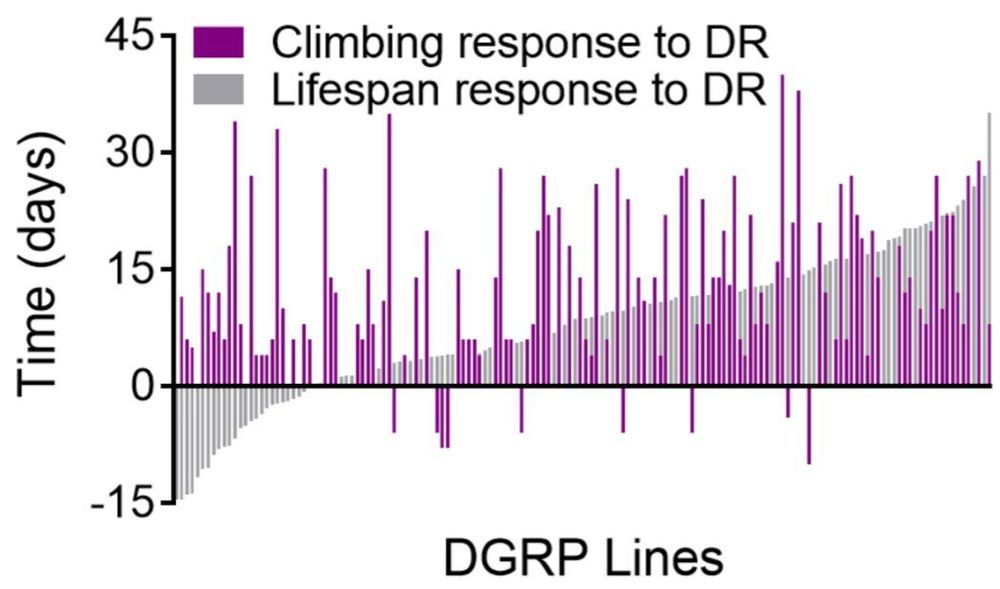An underlying assumption of research on aging holds that dietary restriction (and drugs that mimic its effects) will slow aging to extend both lifespan and healthspan jointly. While eating a Spartan diet has been shown to robustly extend lifespan and delay age-related diseases in many species, a genome-wide analysis of 160 genetically distinct strains of the fruit fly D. melanogaster shows that lifespan and healthspan are not linked under dietary restriction. Results are published in Current Biology.
Though on average lifespan was extended and healthspan was increased, researchers from the Kapahi lab at the Buck Institute say the devil is in the details. In the study researchers measured nutrient-dependent changes in lifespan and tracked age-related changes in physical activity to measure healthspan. While 97 percent of strains showed some lifespan or healthspan extension in response to dietary restriction, only 50 percent of strains showed a significantly positive response to dietary restriction for both. Thirteen percent of the strains were more vigorous, yet died sooner with dietary restriction; 5 percent lived longer, but spent more time in poor health. The remaining 32 percent of the strains showed no benefits or detriments to lifespan or healthspan, or negative responses to both.
“Dietary restriction works, but may not be the panacea for those wanting to extend healthspan, delay age-related diseases, and extend lifespan,” said Pankaj Kapahi, Ph.D., Buck professor and senior author on the paper. “Our study is surprising and gives a glimpse into what’s likely going to happen in humans, because we’re all different and will likely respond differently to the effects of dietary restriction. Furthermore, our results question the idea that lifespan extension will always be accompanied by improvement of healthspan.”









Comments are closed.